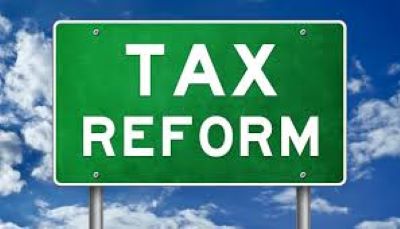In the intricate nature of Nigeria’s socio-political setting, the proposed tax reforms under President Bola Ahmed Tinubu’s administration are becoming a focal point of contention. The apprehensions voiced by Northern Nigerians are not merely reactions to policy changes; they are reflections of deeper historical, economic, and cultural currents that shape their interactions with the federal government. As the reforms make their way through the National Assembly, the North finds itself at a critical juncture, grappling with the implications of these reforms while navigating the complexities of representation and accountability.
Historical Context and Economic Realities
To understand the fears surrounding the proposed tax reforms, it is essential to contextualize them within the historical framework of Northern Nigeria. The North has long been characterized by its agrarian economy, which contrasts starkly with the more industrialized South. This economic dichotomy has fostered a sense of vulnerability among Northern stakeholders, who often perceive federal policies as disproportionately favoring the South. The proposed tax reforms, which aim to broaden the tax base and increase revenue generation, are seen by many in the North as a potential burden on an already struggling populace.
The historical neglect of the North in terms of infrastructure development, education, and healthcare has increased these fears. Many Northern Nigerians view the tax reforms as a potential mechanism for further marginalization, leading to increased economic strain on a region already grappling with poverty and insecurity. The prospect of higher taxes raises legitimate concerns about the ability of local businesses and households to cope with additional financial pressures, particularly in a region where economic opportunities are limited.
Political Representation and Accountability
The political environment in Nigeria is marked by a complex interplay of regional interests, party affiliations, and individual ambitions. The current situation in the National Assembly, where the North is adequately represented in terms of numbers, raises questions about the effectiveness of that representation. The capacity of Northern legislators to advocate for the interests of their constituents is often undermined by factionalism, party loyalty, and a lack of cohesive strategy. As the South pushes forward with the tax reforms, it is incumbent upon Northern legislators to hold themselves accountable to their constituents and to challenge policies that threaten the economic well-being of their region.
The recent appointment of key political figures, such as Godswill Akpabio and Tajudeen Abbas, as sole candidates for the Senate Presidency and House Speaker respectively, has drawn criticism from various quarters, particularly in the North. This criticism is rooted in the belief that such appointments do not reflect the diverse interests of the Nigerian populace. The backlash against these appointments serves as a reminder of the need for a more inclusive political process that genuinely represents the voices of all Nigerians, particularly those from historically marginalized regions.
The Role of Civil Society and Public Discourse
In the face of these challenges, the role of civil society and public discourse becomes paramount. The fears surrounding the tax reforms must be articulated and debated within the public sphere, allowing for a more nuanced understanding of their implications. Northern Nigerians must engage with their representatives, demanding transparency and accountability in the legislative process. This engagement should not be limited to the tax reforms alone; it should extend to all policies that impact the region’s socio-economic fabric.
The media, as a critical conduit for information and public opinion, has a vital role to play in shaping the discourse around tax reforms. By providing a platform for diverse voices and facilitating informed discussions, the media can help demystify the complexities of tax policy and its implications for different regions. Furthermore, civil society organizations can mobilize grassroots movements to advocate for equitable policies that consider the unique challenges faced by Northern Nigerians.
A Call for Unity and Strategic Action
As the proposed tax reforms continue to unfold, Northern Nigerians must unite in their efforts to influence the legislative process. This unity should transcend ethnic, religious, and political affiliations, focusing instead on the common goal of safeguarding the interests of the region. A strategic approach to advocacy, characterized by collaboration among various stakeholders, can amplify the voices of Northern Nigerians in the National Assembly.
Moreover, Northern legislators need to engage in constructive dialogue with their Southern counterparts. A collaborative approach to tax reform can lead to policies that are equitable and beneficial for all Nigerians, rather than exacerbating existing disparities. By fostering mutual understanding and cooperation, the North can play a pivotal role in shaping tax policies that are reflective of the diverse realities of the nation.
Conclusion: Navigating the Future
The proposed tax reforms under President Bola Ahmed Tinubu’s administration represent both a challenge and an opportunity for Northern Nigeria. While fears of economic marginalization loom large, there is also the potential for constructive engagement and advocacy that can lead to equitable policies. As the North navigates this critical juncture, it must hold its federal legislators accountable, demand transparency, and engage in meaningful dialogue with all stakeholders.
The shadows lurking behind the proposed tax reforms serve as a reminder of the complexities of Nigeria’s socio-political landscape. However, they also present an opportunity for Northern Nigerians to assert their agency, advocate for their interests, and contribute to a more inclusive and equitable Nigeria. In this endeavour, unity, strategic action, and a commitment to accountability will be paramount in shaping a future that reflects the aspirations of all Nigerians, regardless of their region.


